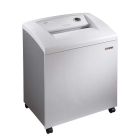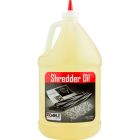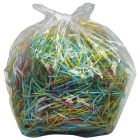Six Easy Ways to Prevent Identity Theft
These days, there is no bigger threat to your financial security than identity theft. It is alarming how many ways those who would seek to defraud you are finding to get at your sensitive information. Here are a few ways you can help prevent identity theft from ever happening.
- Get A Paper Shredder: This is the easiest way of all to protect your sensitive information. In fact, it is almost unthinkable that you would still be merely throwing away or recycling anything that has your personal information on it. It should go without saying that all of your credit card and bank statements, if they are not filed, should be destroyed by a shredding, by you, on site. One item that also needs to be destroyed, that might go unnoticed, however, is credit card applications. They can often fall into the wrong hands and be used by someone else to obtain credit in your name. To the shredder with them!
- Protect your PIN: Whenever you use an ATM or a debit card at a grocery store, it wouldn't hurt to take a quick look over your shoulder to make sure that no one is watching you key in your secret code number. There is no end to the damage a criminal can do armed only with your name and PIN.
- Keep The Check Out Of The Mail: If at all possible, have checks you have coming in directly deposited to your bank account. Conversely, if you still use personal checks to pay your bills, take them to the post office, or put them in a US mail box yourself. Identity thieves love to watch for people to put out their mail and then steal it before the mail person arrives to pick it up.
- Check Your Monthly Statements: Often, identity thieves will make purchases with your accounts that are so small you may not notice them right away. Look at your statement closely for anything you may not have purchased. If you notice anything that you don't recognize investigate it further. Don't be afraid to call your bank or the credit card company and ask questions about a specific transaction.
- Carry The Bare Minimum With You: You should have your social security number memorized, and if you don't, do it now. There is no reason to keep the card in your wallet, and the same rule applies to any credit cards you don't use. If your wallet or purse is stolen you don't want the thieves to have your SSN or access to a huge number of credit cards.
- Get To Know FACTA: In 2005, the government put in place regulations that require businesses to destroy any sensitive information derived from their clients or customers before throwing it away. Known as the Fair and Accurate Credit Transactions Act, it was put in place to help ensure that identity thieves-or anyone else for that matter-- can't get their hands on any of your confidential information. Though it is likely that the people you do business with are in compliance with the law, is doesn't hurt to ask. Just as you should have a shredder, those whom you do business with should too.
Again, the easiest way to make sure that your most sensitive information doesn't fall into the wrong hands is to destroy it. If everyone used a shredder, it is safe to say that identity theft would happen a lot less often. Follow these six simple steps and help protect yourself from identity theft today.









